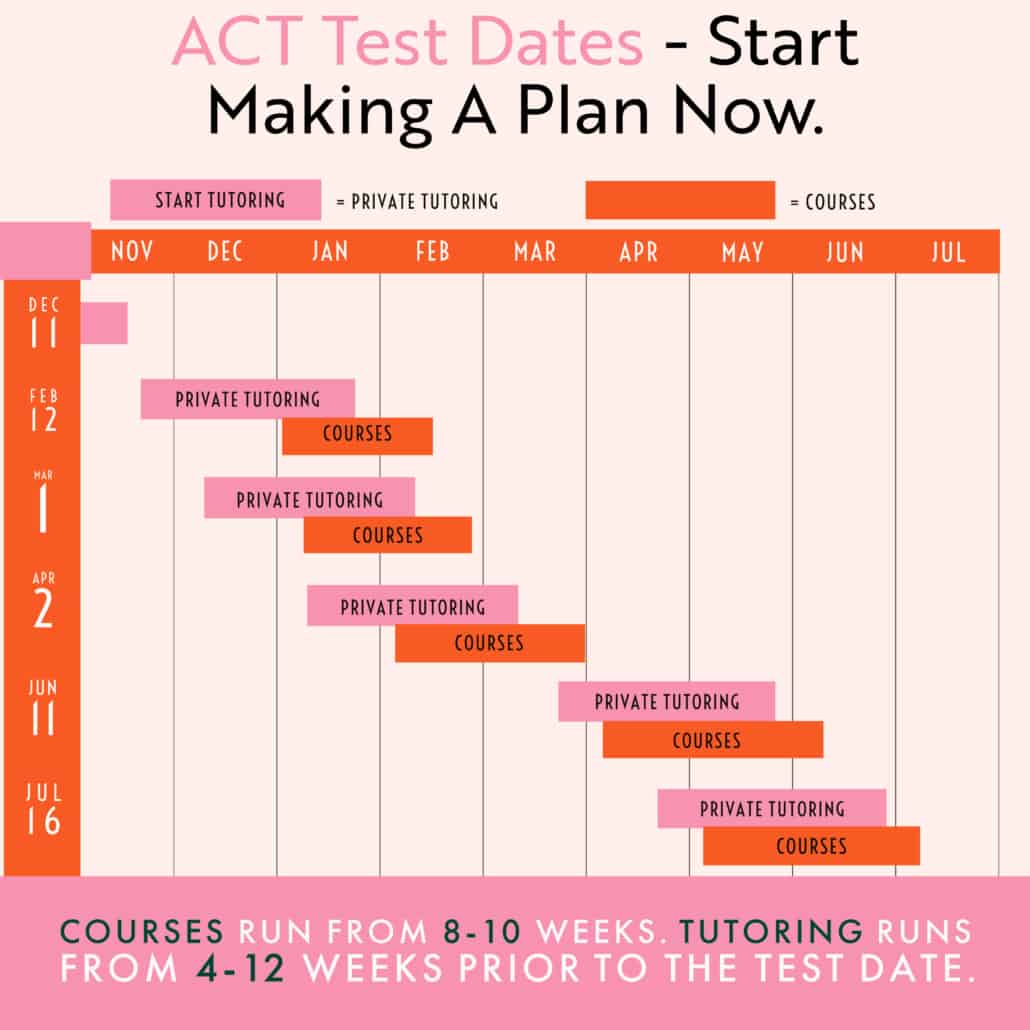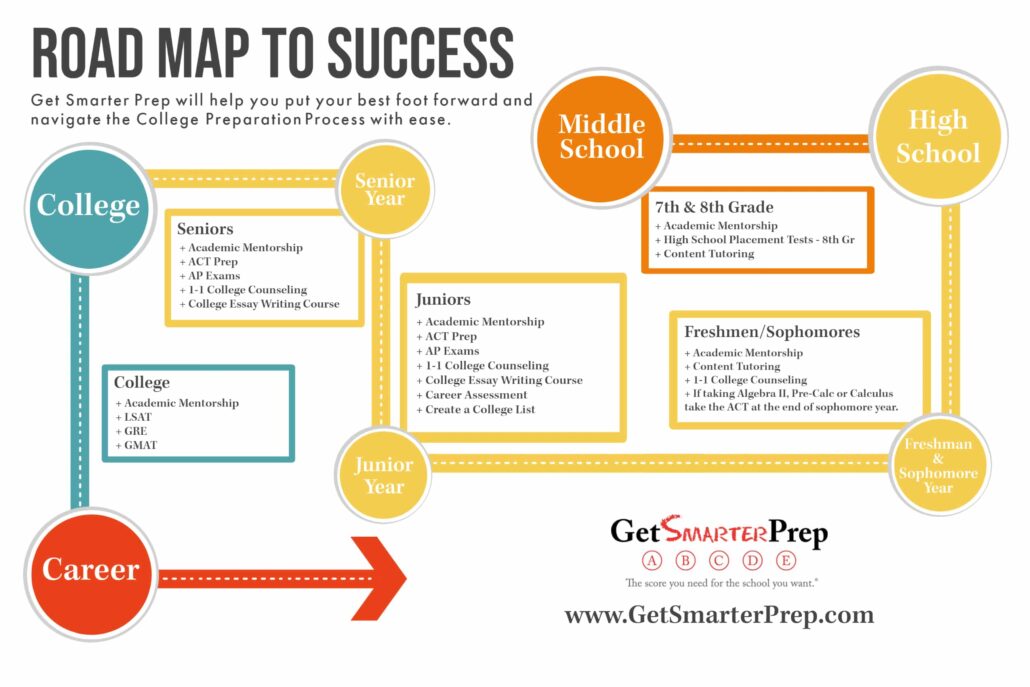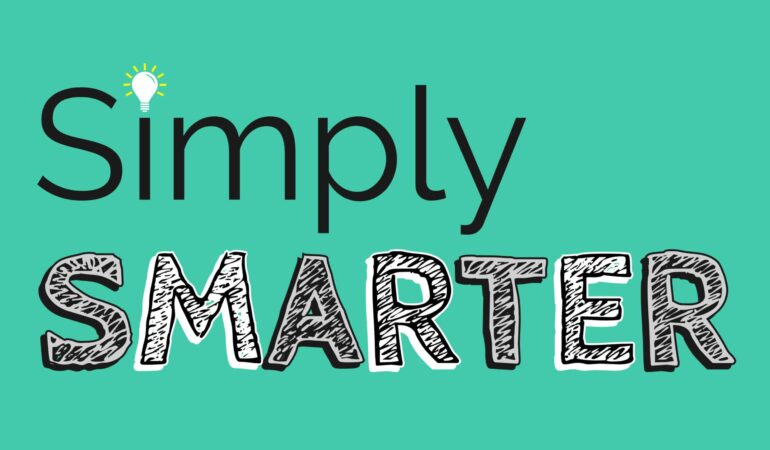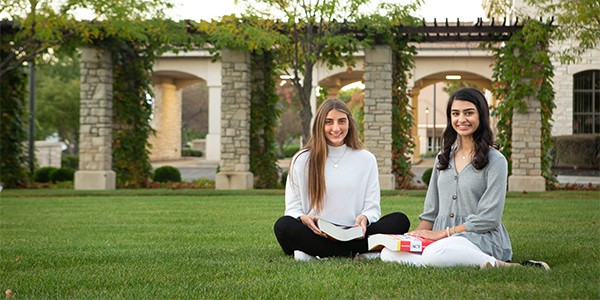Get Smarter Prep Partners with Tamara Day
Get Smarter Prep today announced a new partnership with Tamara Day. This partnership will help local students and parents meet and exceed their goals for college by learning proper techniques and methods to study better, retain knowledge, and prepare for their future.
“We are thrilled to work with the Day family and help the boys reach their educational goals,” says Caleb Pierce, President at Get Smarter Prep. “The college prep process can be confusing for most families, and we are glad that our amazing team can be a reliable resource to families.”
“My husband and I work full time, and with four kids, our evenings were total chaos between homework, practices, and events. Homework was by far the most stressful part.,” says Tamara Day, Host of HGTV’s Bargain Mansions and Owner of Growing Days. “Get Smarter Prep has lifted that weight off of our shoulders. We know our boys are getting the guidance they need, and our world is peaceful again!”
By working with Tamara, we hope to help even more students reach their potential by understanding the college prep process and clearly identify steps they need to take in high school to make college preparation not only understandable, but more importantly, attainable.
About Get Smarter Prep:
At Get Smarter Prep, our goal is to customize students learning experiences to help them score better, and the techniques and methods we teach will help students going forward into college. Our tutors help build up confidence, beat test anxiety, and identify strengths & areas students want to improve.
About Tamara Day:
Designer Tamara Day is a purveyor of the glam and cozy. This busy wife and mother of four styles for the spirited home, mixing glam, comfort, and family. Tamara’s sense of style and eye for what works has created an insatiable demand for her interior design expertise, furniture and décor. On HGTV’s Bargain Mansions, Tamara and her crew transform big, old houses that she finds at bargain prices. Tamara also owns Growing Days, her interior design, furniture, décor and lifestyle business.
When to START preparing for the ACT
When should I start preparing for the ACT? That’s a great question and it’s different for everyone for a multitude of reasons, but for this blog’s sake, we are going to generalize when students should start the process.
There are a number of ACT test dates throughout the year, and some are closer in dates than others and can feel like they are back-to-back. Take the June and July test. These test dates are only 5 weeks apart. The state of Kansas offers the ACT to every public-school Junior on March 1st, but the next national test date is April 2nd. So, when should students start preparing for the ACT?
Students should start preparing for the ACT 4-12 weeks prior to the test date. That doesn’t mean start mid-March for the April 2nd ACT. Three weeks of private tutoring is not a sufficient amount of time to reach your goals. Let’s say a student wants to jump from a 21 composite score to a 25-26 composite score. Three weeks of private tutoring won’t do it! Plus, that puts a lot of pressure on the student! Start preparing three months in advance so you won’t have to rush, you can pick up the strategies your tutor is implementing, and you can fully understand the timing aspect of the test.

Prepare!
If you no clue what you might get on an ACT, take a free practice test. We offer them every Saturday morning! It’s a great way to establish a baseline score and see what you might score on an actual ACT. Once you have a baseline score, our college experts can determine the amount of assistance you will need to meet your goals. For anything over a 4-5 point increase, a 12 week tutorial would be your best bet.
Our tutors understand that life happens and test dates sneak up on you. That’s why we do offer shorter tutorials such as 4,6 or 8 week tutorials. We see excellent results with shorter tutorials as well, but if you can prepare as much as possible, why wouldn’t you?
We also offer an ACT Prep Course. This course is designed for students who enjoy a small classroom setting (between 3-6 students) and feel comfortable learning with a other students scoring in a similar ACT range, specifically between a 19-26 composite score.
Bottom line: look at the ACT test dates that would be a good fit for you, decide on a date, take a look at the calendar and make sure you give yourself enough time to fit in a full tutorial (4-12 weeks depending on goals).
ACT Prep
It’s that time of the year again. School is starting, students are getting back into the swing of things, the weather is starting to cool down (okay maybe yet not in the Kansas City metro) and students are starting to think about the next step towards college. To be honest, that’s going to look different for freshman that it is for sophomores than it is for juniors and last, but not least, seniors. We’ve put together a road map to college as a visual to guide students through their high school career. Not sure where to start? Look at the roadmap.

Freshman Year
A great place to begin is by building a resume as a freshman. Keep track of your classes, make notes of the courses you liked and didn’t like, put a star next to your favorite teacher. Your resume doesn’t necessarily have to be perfect and polished, but make sure you take notes. You’ll thank yourself in three years.
Sophomore Year
As a sophomore, your classes may start getting a bit more difficult and the thought of college a little closer. How best to prepare? Keep going. Keep taking classes that challenge you and keep getting good grades. Join a club, volunteer, try out for a sport. Keep in mind, you should be including all of these opportunities in your resume. If you’ve taken Algebra II as a sophomore, the end of the school year is a good time to start thinking about the ACT. You can take a practice ACT test at Get Smarter Prep to establish a baseline score. We offer Free Practice ACT tests every Saturday morning.
Junior Year – ACT Prep
Okay, we’re going to say it: Your Junior year of high school is important. It’s the time in your high school career when students start preparing for the ACT, put together college lists, and perhaps start visiting colleges. If you didn’t take Algebra II as a sophomore, then you will take it as a Junior, which is important because the math section of the ACT is heavy in Algebra. We have multiple options to start preparing for the ACT including courses with set curriculum, Semi-Private Tutoring and Private Tutoring.
Senior Year
Senior year and the countdown is on! If you still need to increase your ACT score, the first semester is the best time for ACT Prep so you can crush the ACT and get to your ACT goal. Hopefully as a senior, you have a college list prepared, you are working on your college essays, and are ready to start applying to some of those colleges. Then sit back and enjoy the rest of high school!
At Get Smarter Prep, we are here to help. We want every student who walks through our doors to succeed. Whether that means a 2-point ACT increase, 5-point ACT increase or help with college essays, our tutors are readily available to help students reach their goals.
Scholarship Winners
One of our favorite ways to give back to the Kansas City area is offering local students the chance to succeed no matter what school they attend or where they come from. In fact, it’s so important to us that we partnered with another local organization that does the same thing for high school students.
When we met two of the founders of The Future of Us, who invest in students by offering finances, time, guidance, leadership, support and encouragement for their academic goals, we knew immediately that we wanted to help and be a part of what they offered to students in their community.
Fast forward six months into our partnership and we have helped two amazing students, hand-picked by TFOS, to prep for the ACT. Each student has been given the same opportunity: take a free practice, establish a baseline score, evaluate how best to prepare for the ACT, and begin one-on-one private tutoring.

Our first scholarship recipient, Kenmaryon, was able to fit in a 9-hour Tutorial for the April 17th ACT and improved 3 points! We are excited for this opportunity to open new doors for Kenmaryon’s future college plans, which include applying to UMKC and University of Missouri. We wish him the best of luck as he prepares for his senior year of high school!
“The experience was helpful, especially when the ACT feels like a random test near the end of high school. The prep helped me understand the ACT and develop strategies like it was presented. The one-on-one tutoring helped me get an answer quicker to any problem I had,” said Kenmaryon.
The second scholarship recipient is going into his Senior Year at from Belton High School and is active in track and in his free time enjoys photography. Michael had a 9-hour Tutorial for the July 17th ACT and improved his ACT score by 6 points! Michael is applying to University of Kansas as well as Missouri State University.
“I Love all of my tutors, everyone is very friendly and I’m way better at doing ACTs than before this. I’m so happy about my six-point increase, I’ve really improved thanks to you guys! Thank you so much Jill, and everyone else that has helped with this ACT,” said Michael.
“Michael has been wonderful in class! After using our universal strategies, his scores were up four points by the midterm. He’s dedicated to get his score up, and he always has such a positive attitude in class. Michael’s been working so hard, and it’s really paying off for him!” said Ashley Brennan, Michael’s Tutor.
Our Tutors look forward to investing in more students sent to us by TFOU throughout the second half of the year.
Common App Essay Update
If there is one thing the pandemic has taught nearly everyone, it’s that there is room in your life to focus on other people. Be outward focused. Get groceries for your elderly neighbor. Self-isolate if you’re feeling sick. Be nice and say kind things to others. Reflect on what you can positively do for other people and be thankful for what others do for you.
Common App has certainly taken this into consideration when creating a new essay prompt.
“Reflect on something that someone has done for you that has made you happy or thankful in a surprising way. How has this gratitude affected or motivated you?”
They retired the seldom used option about solving a problem.
Here’s what Common App President & CEO Jenny Rickard has to say, “Particularly at this challenging time, we can help students think about something positive and heartfelt in their lives,” she explains. “And we can do it explicitly.”
Below is the full set of essay prompts for 2021-2022.
- Some students have a background, identity, interest, or talent that is so meaningful they believe their application would be incomplete without it. If this sounds like you, then please share your story.
- The lessons we take from obstacles we encounter can be fundamental to later success. Recount a time when you faced a challenge, setback, or failure. How did it affect you, and what did you learn from the experience?
- Reflect on a time when you questioned or challenged a belief or idea. What prompted your thinking? What was the outcome?
- Reflect on something that someone has done for you that has made you happy or thankful in a surprising way. How has this gratitude affected or motivated you?
- Discuss an accomplishment, event, or realization that sparked a period of personal growth and a new understanding of yourself or others.
- Describe a topic, idea, or concept you find so engaging that it makes you lose all track of time. Why does it captivate you? What or who do you turn to when you want to learn more?
- Share an essay on any topic of your choice. It can be one you’ve already written, one that responds to a different prompt, or one of your own design.
If you have “extra” time in the summer or on the weekends, take a look at the essay prompts and start thinking of your response. Once you’ve thought about it, quickly jot your thoughts down. From there, take a few more minutes to mindfully construct a paragraph. Once it’s time to sit down and write your essay, you will already have a good portion of the essay already written. After that, it’s only a matter of fine tuning before you have a beautifully written essay.
If you need help crafting a well written essay, our college experts are here to help. Learn more about college essay writing here.
Choosing the ACT, SAT or Both
Choosing the ACT, SAT or Both
This debate may be familiar to many of you. ACT? SAT? Both? Some students and families enter junior year with a perfectly clear answer to those questions, but the reasons behind those decisions may be less clear. Do any of these sound familiar?
- He’ll take the ACT, of course. He wants to attend a school in the Midwest.
- We’re an SAT family. Her older brother scored much better on the SAT.
- Of course I want to prepare for both exams!
The ACT and SAT originated in different places, for different purposes, and developed different reputations over the years. Despite the many changes to each test, some of those perceptions persist.
The SAT, originally developed by the College Board for use in admissions to elite, northeastern schools, remains more popular on the coasts than in the Midwest. The ACT came later, designed to provide an admissions test for regional and public universities that didn’t use the SAT; it is still more popular in the Midwest than the SAT.
Although these regional patterns persist regarding which test students tend to take, the initial reason for those patterns – which test your college of choice might accept – no longer holds. The final school to accept the ACT finally did so in 2007, meaning that the choice of which test to take is really up to the individual student.
So, choosing the ACT, SAT, or Both? There are differences, though, between the ACT and the SAT, that one should consider when deciding between the two exams, and they don’t have anything to do with the geographical distribution of your college list.
First, how strong are you at math? On the SAT, math counts for half of your score, while on the ACT math makes up only ¼. That’s a significant difference. Consider, also, how well you’ll fare without a calculator, as the SAT has a section that must be completed without one.
How much do you want to improve your score? Because of changes to the SAT in 2012, there is much less practice material available than for the ACT, which means fewer opportunities to practice and improve your score. If you’re looking for a significant boost, you might lean towards the ACT.
How much do you struggle with timing? The timing on the ACT is more difficult for some students. The SAT provides more time per question, which might be an asset. Taking a practice version of each will help you to know if that is the case for you.
A final consideration is that the SAT, during and since the redesign, has been a bit unstable. There have been data breaches, score delays, and debates over how the new scores stack up to the old ones.
If you know you’ll be taking an ACT through school, or (for those who haven’t already taken it) you plan to prepare for the PSAT, those factors might influence your choice as well. The goal is to prepare for only one exam.
The ACT (or SAT) is only one part of your college applications, and your college applications are only one part of your life. Preparing for both tests – or choosing the wrong one – is a recipe for doing more work than necessary and taking time away from other activities and classes that make up your high school career.
By Audrey Hazzard, Premier-Level Tutor
PSAT Prep?
PSAT Prep?
This is the time of year that parents come back from vacation to the reality of standardized tests. Many have just received their child’s PSAT scores. Here’s one Rockhurst parent’s email to us: “My son, a junior, just got his PSAT scores and is pretty heartbroken about his 210. Great score, but most likely a point or two below what the cut-off will be.” I know, it takes some explanation.
Wait a minute, the SAT isn’t a test of how smart you are?
Yes and no. As heartbreaking as this may be for those who did well on their entrance exams years ago, and carved out a life of success for themselves based on these scores, these exams have nothing to do with academics. It doesn’t even have anything to do with test taking. It has everything to do with understanding how this particular test is constructed and attacking it accordingly.
Sure, there are plenty of “A” students who do well on this test, but there are also plenty of “A” students who test fine in school who don’t do so well on this test. What does this mean? Well, either it means that they’ve fooled teachers and parents for years, and are really not intelligent, or that this test is not about intelligence. All the SAT (or the ACT) provides is another method colleges can use to eliminate candidates in an ever-competitive pool of high school students.
When do I get started?
The PSAT, which is 2 hours, 45 minutes in length, is offered nationally every year in October. However, for juniors who take the PSAT/NMSQT in October of their junior year, high scores are the basis for National Merit Recognition and subsequent scholarships.
Each section is scored on a scale of 160–760, making a “perfect” score 1520. There are also test scores, cross-test scores, and subscores. There are 2 sections: Math and Evidence-Based Reading and Writing.
The 3 big scores you should look at:
- Total Score
- Evidence-Based Reading & Writing Score
- Math Score
The PSAT is scored on the same rubric, but a slightly different scale, as the real SAT. While the SAT is scored in a range of 400–1600, the PSAT is scored in a range of 320–1520. However, the PSAT is not an entirely accurate predictor of SAT performance. The conventional wisdom is simply to “add a zero” to the 2 digit PSAT scores, but while this helps give a general idea of scores, it is far from accurate for two reasons: 1) The PSAT is shorter than the real exam, has easier questions than the real SAT, and brings none of the real life actual pressures that that test brings, 2) The scores are set as curved against every single other Junior in the country taking the test that day, making an enormous curve that never occurs on any one of the individual 7 SAT national dates. This explains how a student can miss one question on a PSAT and lose as much as 5 points – the curve is very steep.
While being a National Merit Scholar brings some cachet to any college application, it also (more importantly) brings cash – be it as far away as USC (a half-tuition scholarship for any Finalist who designates USC as their first choice school) or as close as KU ($10,000/year for the same conditions).
Will prepping for the PSAT help? If you are a serious contender for a top-tier school, yes. The reason is that the test is not the only determinant of Semi-Finalist or Finalist status. If the grades and resume aren’t there, your time is better spent improving the resume you do have and doing well in the classes you are taking.








